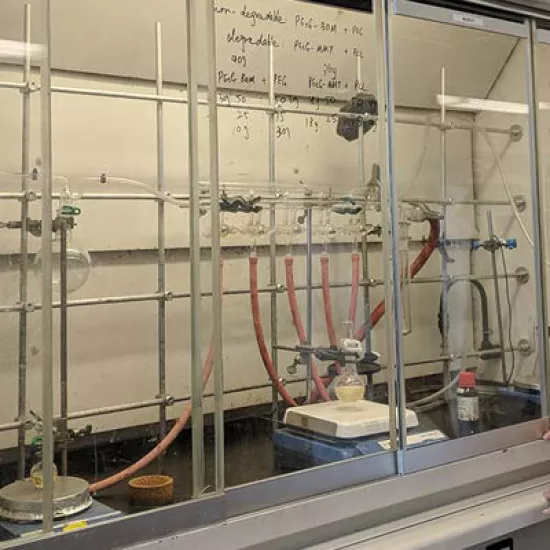
Environmental Geosciences
Completion of this program is intended to fulfill the knowledge requirements for certification as a Professional Geoscientist (P. Geo.) in conformity with the stipulations of the Association of Professional Geoscientists of Ontario (APGO) and the Canadian Council of Professional Geoscientists (CCPG).
Honours Bachelor of Science
Program Plans
Plan your degree with these academic and co-curricular program overviews.
Tip Sheets
Learn more about further education, applying to jobs & more!
- Environmental Epidemiologist
- Soil Scientist
- Environmental Engineer
- Botanist
- Environmental Activist/Lobbyist
Admission Requirements
Regional Requirements
Admissions RequirementsLife in Environmental Geosciences
Buzz Around Campus
Sample Courses
This course will examine the complex nature of minerals and crystals from a geological, physical and chemical perspective and will introduce the petrology of volcanic rocks, intrusive plutonic rocks, metamorphic rocks, and sedimentary rocks.
This course provides an introduction to the principles and concepts of geomorphology, the study of the processes that shape the surface of the earth. The course adopts a process-oriented approach to the study of the variety of landforms found in the natural environment.
This course will provide an understanding of chemical, biological, physical and geologic aspects of the oceans.
Other Programs to Consider

Geographical Information Systems
The GIS BSc offers an analytical perspective on geographical information. What you learn in the GIS program is applicable to employment in public and private sectors including public health and healthcare, urban transportation planning, natural resource management, and conservation agencies. In-depth studies — beyond basic geography — include mapping, spatial analysis, digital databases with specializations in modelling, statistical analysis and remote sensing.

Geography (HBSc)
The Geography BSc offers a broad perspective on physical geography. In-depth studies include climatology, hydrology and ecosystems, with possible specialization in biogeochemistry, arctic regions, landscape ecology, natural resources and urban climate. The curriculum stresses the integrative nature of the discipline as well as the development of skills in geographical information analysis.

Biology
Biology is the study of living organisms and involves observation and analysis of the tree of life. The foundation of biology is based upon the core concepts of evolution: natural selection and specialization. The study of biology is applicable to such major problems as conservation, overpopulation, pollution, medicine and disease.



